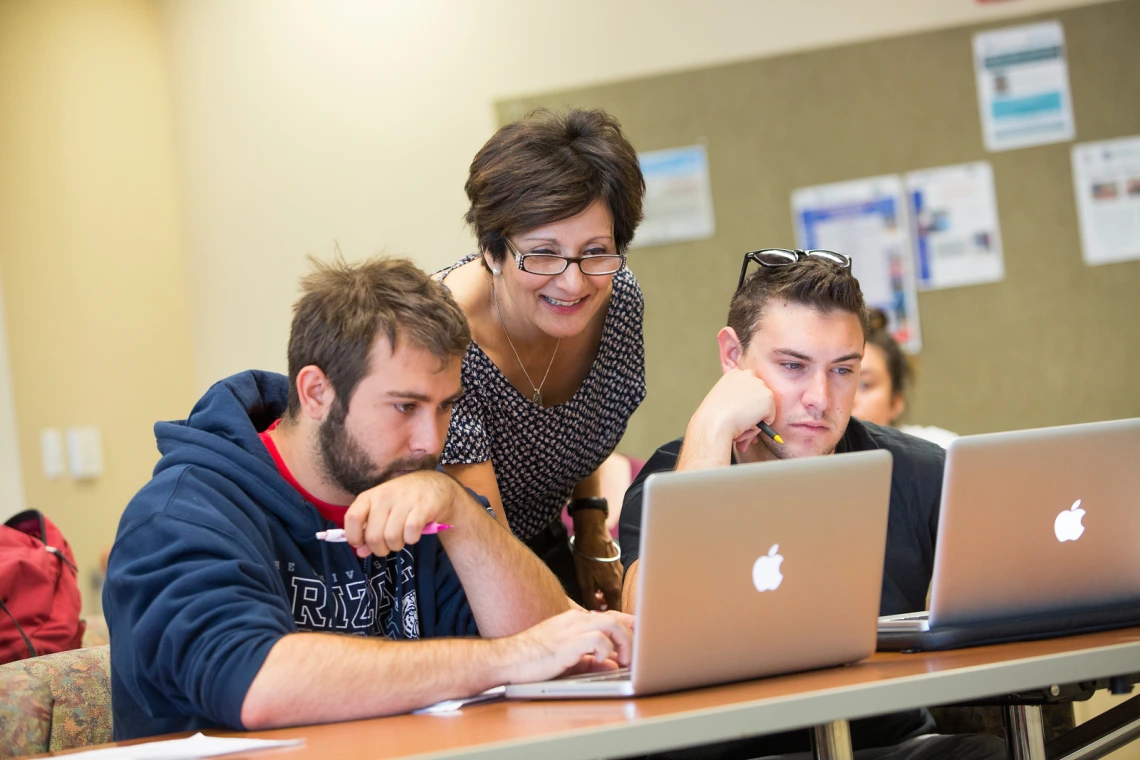
Undergraduate Research Assistantship
Why undergraduate research?
Undergraduate Research Assistants (URAs) explore areas of mathematics that are not typically taught in a classroom setting while also refining their communication skills. Students that participate in undergraduate research gain...
- upper division credit
- resume worth experience
- strong letters of recommendation
- better preparation for graduate-level research
- invitations to travel to conference like SUnMaRC
- the opportunity to win prizes at conferences like the UA Student Showcase
- the opportunity to publish research in scholarly journals
...and much more!
For questions please email program coordinator Sergey Cherkis.
How do I get involved?
Follow the steps below!
Step 1: Learn about undergraduate research.
The following is a list of ways students can learn about undergraduate research opportunities.
- Students can also talk to an Undergraduate Research Ambassador. URAs can help you find individual research opportunities or research-based classes to help you build critical skills. They can also present research opportunities to your class, group, or club.
- Enroll in DATA/MATH 395M - Career Exploration in Mathematics and Data Science
- If you have a particular project in mind but don’t know which faculty member(s) to approach with the idea, the URA Program Coordinator will be glad to help you locate an appropriate faculty member, and the friendly advisors in the Math Center will be equally happy to assist you.
Step 2: Start thinking about project ideas.
This list is not exhaustive - If a project has not been been updated in a long time, check a professor's homepage to see what they've been working on most recently.
|
*Honors Thesis MATH 498H credit available to students in the Honors College.
**Restrictions may apply. Ask the individual faculty member for details.
Step 3: Find a faculty mentor.
There are several ways to go about this. You may have already found a faculty member to reach out to via the list of projects under Step 2, but if not, here's what you can do.
- The University of Arizona Undergraduate Research website provides information on faculty looking to work with undergraduate students.
- Have a favorite professor? Ask him/her about their area of research. If it sounds interesting, find out if there might be a way for you to participate.
- If you already have one or more faculty members in mind but are unsure if they're taking on undergraduate researchers or you aren't particularly interested in their current research, simpy approach the faculty member(s) to discuss possibilities.
- If you have a particular project in mind but don’t know which faculty member(s) to approach with the idea, the URA Program Coordinator will be glad to help you locate an appropriate faculty member, and the friendly advisors in the Math Center will be equally happy to assist you.
Step 4: Setting up your project.
There are a lot of ways to contact potential faculty mentors. Unless you know the faculty member, email is usually best. If you are sending emails to faculty to inquire about research opportunities, make sure you demonstrate in your email that you have looked at the professor's web page and have interest in their specific research area. If you haven't bothered to do any research on their work, they will not take your inquiry seriously. For additional advice and email templates, check out the UA Undergraduate Research website. There are also some good guidelines and examples here.
Step 5: Earning Credit
If you will be earning credit for your URA experience, you will need to register through the math department Academic Office (Mathematics Building Room 108); there is a special form needed. The form requires a description of the work to be done, and signatures from your project advisor and major advisor. If your faculty mentor has funding to pay you, he/she will work with our Business Office to help you set this up.
Step 6: Optional
Honors College students are eligible to apply for grant funding (up to $1500) to pay for their time spent on independent research through the Spirit of Inquiry Research Program.
Smaller grants may be available through the Graduate College for undergraduate students. Learn more on their website.


